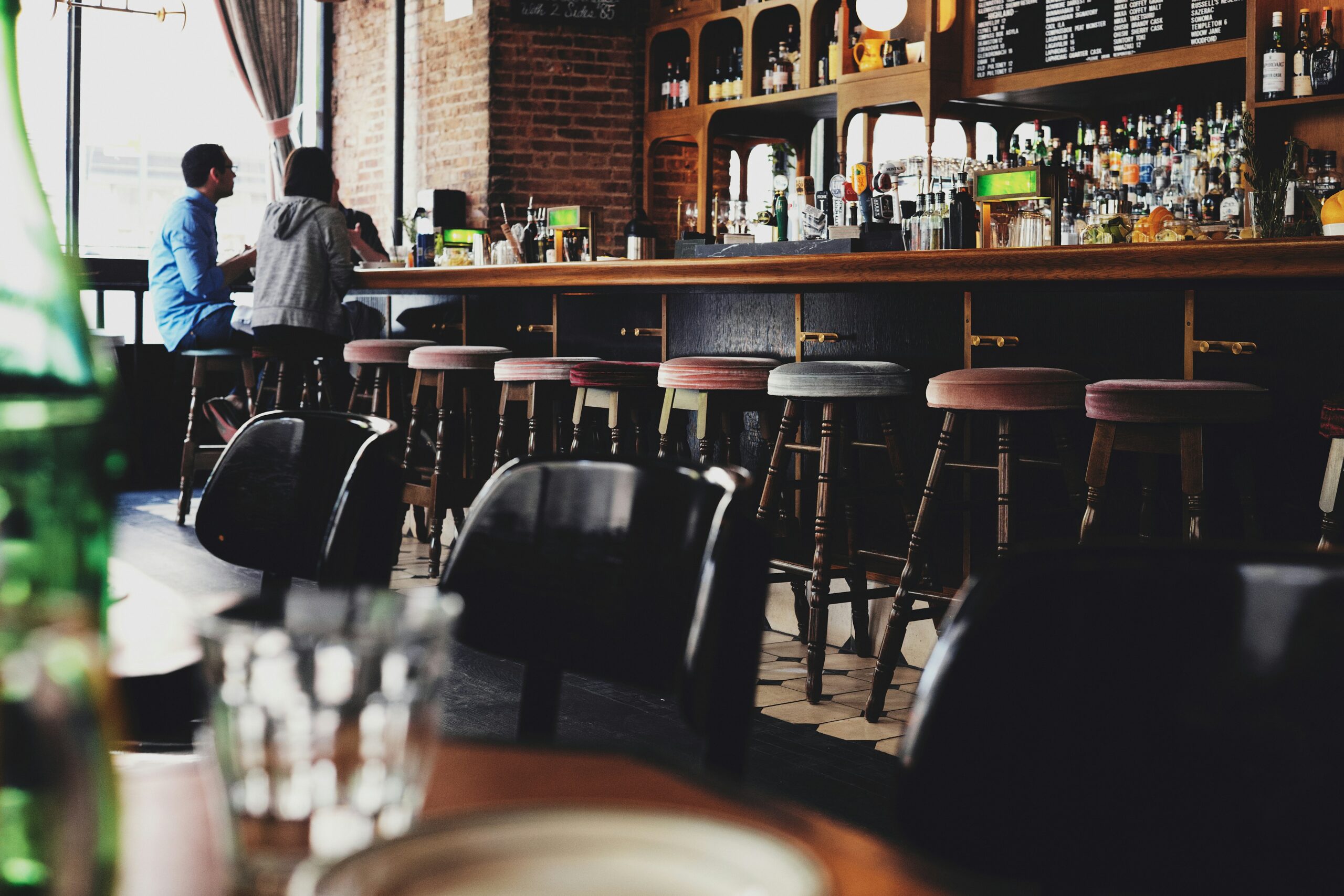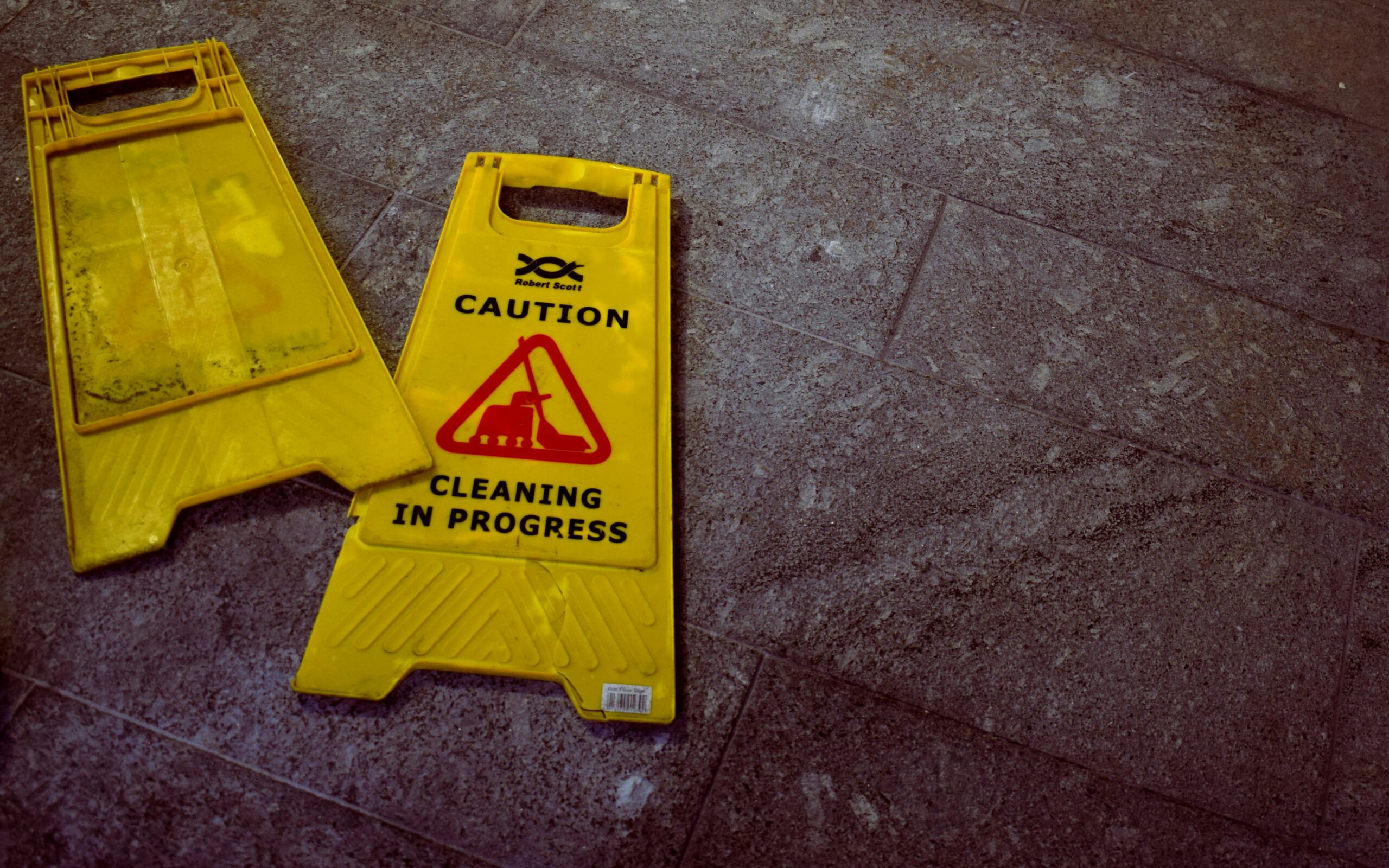While undoubtedly rewarding, owning and operating a venue in the UK comes with significant legal challenges.
From considering the safety of your customers, to ensuring a proper working environment for your staff, to an ever-changing list of legislative requirements, putting a foot wrong could land your business in financial or reputational trouble.
In this blog, we’ll explore five common legal claims faced by companies operating in the hospitality sector and provide some tips on how to safeguard your business against them.
- Slips, trips, and falls
One of the most common claims in bars and venues stems from slips, trips, and falls.
The Health and Safety at Work Act 1974 places a legal duty on employers to ensure the health and safety of anyone on their premises, including customers, employees, and contractors – for example, by putting a wet floor sign up to indicate a slippery surface.
Failure to comply with these obligations can lead to personal injury actions, which can become either Employers’ Liability or Public Liability claims.
How to protect your venue:
- Regularly conduct and document risk assessments in line with the Management of Health and Safety at Work Regulations 1999. Identify potential hazards, such as wet floors, uneven surfaces, or poor lighting, and take steps to mitigate these risks.
- Ensure your staff are trained to handle hazards immediately, like cleaning spills promptly and placing warning signs when necessary.
- Implement a routine for inspecting the premises to ensure walkways are clear and flooring is safe. Keep a record of these inspections as evidence of due diligence.
- It is a legal requirement to have an accident book, and to use it. Accidents noted in the book should trigger management to collate information on the accident, including accident forms, witness statements and CCTV footage in case of a claim.
- Ensure you have comprehensive Public Liability insurance in place to cover legal fees and compensation if a customer sues for injuries sustained on your property.
- Noise complaints and licensing
Bars and venues in the UK must operate under the Licensing Act 2003, which governs the sale of alcohol, live entertainment, and late-night refreshment. Noise complaints from neighbours or nearby businesses can not only result in legal action but could also jeopardise your premise’s licence.
How to protect your venue:
- Develop a noise management plan as part of your premises licence application and keep it up to date. This should include measures to control noise levels, such as soundproofing, limiting outdoor activities, and setting curfews for loud music.
- Maintain open communication with the local community. Address complaints promptly and professionally to prevent them from escalating to legal disputes.
- Regularly review your licence conditions to ensure compliance. Any breaches, particularly related to noise, can result in a review of your licence and potentially lead to its revocation.
- Consider taking out Loss of Licence insurance, which can cover financial losses if your premises licence is revoked due to issues like noise complaints.
- Employment practices claims
Employment-related claims, such as unfair dismissal, discrimination, or workplace injuries, can be costly for bars and venues. Under the Employment Rights Act 1996, employees have the right to fair treatment, and failure to comply with employment law could lead to a tribunal claim.
How to protect your venue:
- Ensure all employees have clear, legally compliant contracts of employment. This should outline their rights, responsibilities, and any workplace policies, such as those related to health and safety or discrimination.
- The Health and Safety Executive (HSE) mandates that employers must provide a safe working environment. Conduct regular risk assessments and implement measures to reduce workplace hazards, such as ensuring safe lifting techniques and providing appropriate personal protective equipment.
- Establish and follow robust HR procedures for dealing with disciplinary actions, grievances, and dismissals. Document all actions taken to demonstrate fairness and compliance with the law.
- Take out Employment Practices Liability insurance – typically found in either a Management Liability package or within a Legal Expenses insurance. The former policy generally provides better, wider coverage. However, both will usually cover legal defence costs if an employee takes you to a tribunal, and pay for the damages and costs awarded against your venue should you lose.
- Food safety claims
Bars and venues that serve food and/or drink must adhere to strict food safety regulations under the Food Safety Act 1990. If a customer becomes ill after consuming something from your menu, you could face significant legal claims.
How to protect your venue:
- Implement a food safety management system based on Hazard Analysis and Critical Control Point (HACCP) principles. This helps identify and control potential food safety hazards.
- Ensure that all staff involved in food preparation and service are regularly trained in food hygiene and safety. The Food Standards Agency (FSA) offers guidelines and training resources to help meet legal requirements.
- Only source food and drink from reputable suppliers. Regularly verify supplier standards and keep records of all deliveries to track the origin of ingredients in case of a contamination issue.
- Protect your business against claims of food poisoning or contamination with Product Liability insurance, which can cover compensation and legal costs.
- Data protection breaches
With the rise of digital booking systems and customer databases, bars and venues must comply with the General Data Protection Regulation (GDPR) act to avoid data protection claims. A data breach can result in hefty fines from the Information Commissioner’s Office and compensation claims from affected individuals.
How to protect your venue:
- Develop comprehensive data protection policies that comply with GDPR. Ensure all staff understand their responsibilities when handling customer data.
- Use secure, encrypted systems for storing and processing personal data. Regularly audit these systems to identify and rectify vulnerabilities.
- Collect only the data you need for specific purposes, and ensure it’s securely deleted when no longer required. This reduces the risk of a breach and the potential impact if one occurs.
- Consider Cyber & Data insurance to protect your business from the financial consequences of a data breach. This insurance can cover legal fees, compensation payouts, and the cost of notifying affected individuals – but most importantly, it goes beyond the data risks itself, stepping in should a hack leave your venue out of action and unable to make money for a period of time.
Prevent and protect your venue with RiskBox
Running a bar or venue in the UK comes with unique challenges – which is why it’s vital to understand the common legal claims you might face and take proactive steps to mitigate these risks in order to protect your business from severe consequences.
By being aware of, and adhering to, relevant laws and guidelines (as well as ensuring you have the right insurance coverage in place) you can focus on providing a safe and enjoyable experience for your customers.
At RiskBox, we specialise in helping businesses navigate these complex risks. To ensure your venue has the right protection in place, contact us today on 0161 533 0411 or fill in our contact form
Photo by Luca Bravo on Unsplash




